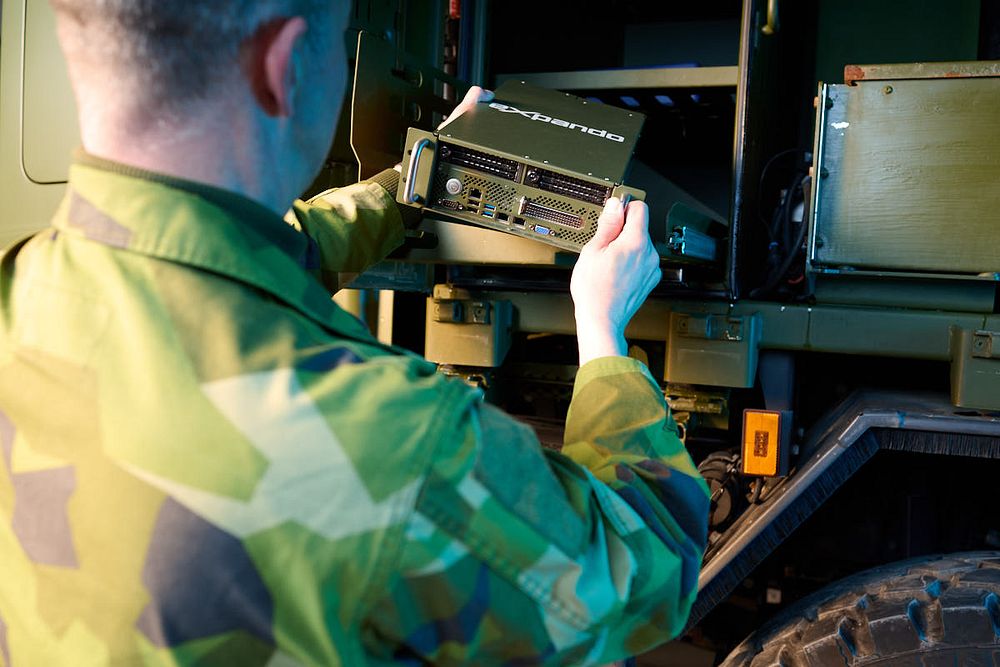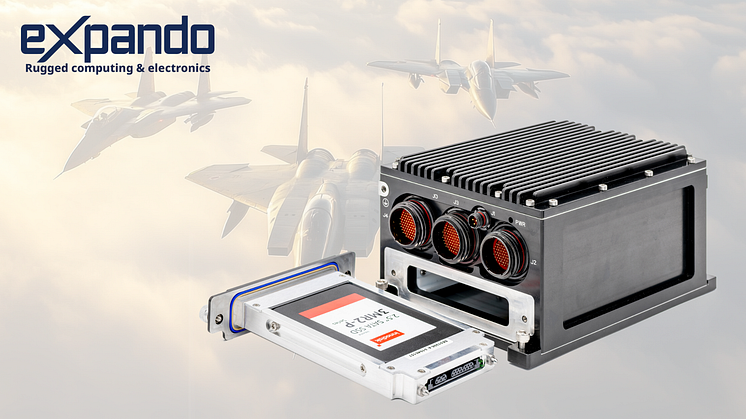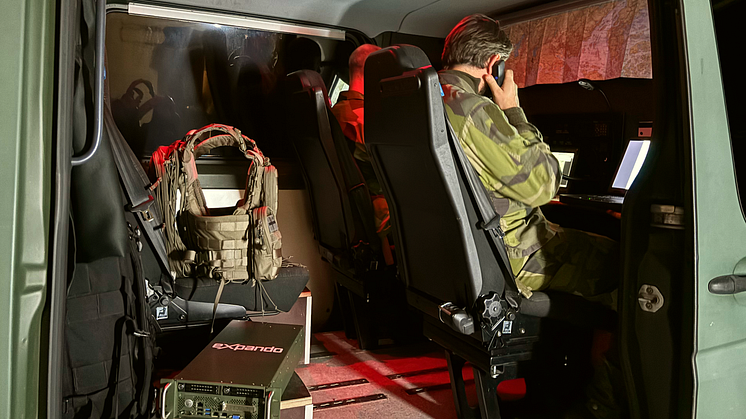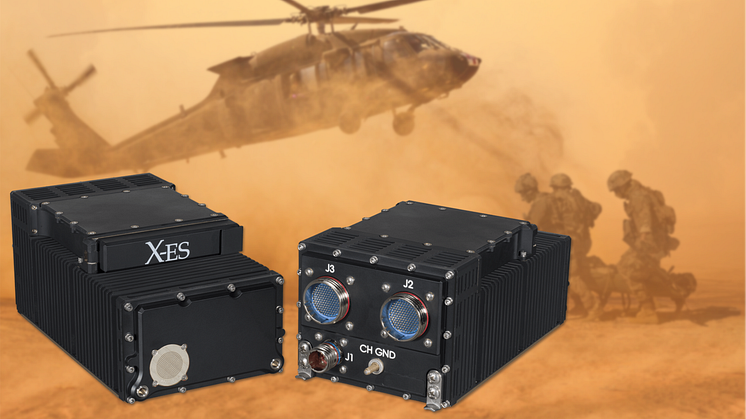
Blogginlägg -
Edge computing: Enhancing Nordic defense capabilities
In military defense, the ability to process data swiftly and accurately is paramount. Edge computing processes data near it’s source rather than relying solely on centralized data centers. This has understandably emerged as a critical technology for the Nordic defense sector, characterized by vast territories and challenging environments. Edge computing offers significant strategic advantages.
Why is edge computing important in the Nordic defense?
Real-time decision-making in remote locations
The Nordic region’s expansive geography often requires military operations in remote areas with limited connectivity. Edge computing enables local data processing, allowing for immediate analysis and response without depending on distant data centers. This capability ensures that defense forces can make timely decisions, enhancing operational effectiveness.
Enhanced situational awareness
By processing data on-site, edge computing provides commanders with up-to-date situational awareness. This immediacy is crucial for understanding dynamic operational environments, leading to better-informed strategies and actions. With increased mobility, command units can operate closer to the frontlines, lead in real time, and gain a more accurate and immediate picture of the situation. A mobile staff on wheels or in tactical vehicles can be quickly relocated to avoid detection or disruption. Additionally, deploying more mobile systems and spreading out command functions increases redundancy and reduces vulnerability.
Operational resilience
In scenarios where network connectivity is compromised, such as electronic warfare or cyberattacks, edge computing ensures continuous data processing and system functionality. This resilience is vital for maintaining operational capabilities under adverse conditions.
NATO Research group develops joint cloud system for secure and rapid data handling in military operations
Since Russia’s annexation of Crimea in 2014 and the full-scale war against Ukraine in 2022, Europe’s security landscape has changed dramatically.
To enable NATO countries to collaborate effectively in military operations, their IT systems must work seamlessly together. A significant challenge is that each country operates its own “cloud service”—the digital infrastructure used to store and process data.
NATO’s research group Edge Computing at the Tactical Edge (IST-193) is working to solve this issue. The goal is to enable different nations’ cloud systems to work together smoothly—as if they were a single system—without requiring any nation to relinquish control over its own technology. This concept is known as an “adaptive federation.”
The researchers are exploring how to build efficient cloud environments in military contexts, where conditions are often harsh (e.g., war zones with limited connectivity). They are also developing solutions that enable AI and machine learning to be used directly in the field—where data is generated—via edge computing.
The project involves researchers from six NATO countries and is partially led by the German research institute Fraunhofer FKIE. They are currently developing prototypes of a joint cloud system, and researchers believe the work will continue beyond the project’s formal end in April 2025.
More information available here
Summary
Edge Computing – A key enabler of defense readiness in today’s security landscape
In today’s defense environment, where nations must be prepared to face complex and rapidly evolving threats, technologies like edge computing are becoming increasingly important. By processing data at the source instead of relying on centralized data centers, military forces can make real-time decisions more effectively. This is especially critical in the Nordic region, where large distances and demanding geography require flexible and efficient solutions.
NATO has also recognized the importance of this technology and is developing solutions that allow different national cloud systems to work seamlessly together, without compromising national control. The research focuses on integrating AI and machine learning with edge computing, enabling data to be processed and analyzed directly in the field.
This research highlights the critical role of edge computing in enhancing defense capabilities in an increasingly digital and dynamic security environment.
Case Study: Modified edge computing for tactical operations
Project overview
A Nordic defense company approached us at Expando with a request for a rugged computing solution. The customer needed two integrated systems: one for a mobile command platform and another for a more stationary command post.

“The deployment of our modified rugged solutions has significantly enhanced our customer’s operational efficiency. Our system scalability has helped the customer build a solution that ranges from small mobile C2 units to larger fixed command posts. Faster data processing in the field enables quicker decision-making, while the rugged design ensures resilience in extreme conditions.” — Daniel Lund, Key Account Manager, Expando
The solution: Modified HALF19® H19-235 microserver and a powerful HALF19® workstation
The mobile solution is our rugged microserver H19-235, designed for high durability and compact deployment. The stationary setup required a high-performance workstation equipped with a powerful GPU, robust CPU, and military-grade connectors (MIL-DTL). This system needed to be capable of intensive data processing while meeting strict environmental and operational demands.
Thermal management challenges due to powerful hardware
One of the main challenges in this project stemmed from the customer’s very specific technical requirements. As technical advisors with extensive experience, our role often becomes not just to deliver hardware but to guide the customer in making strategic design choices to arrive at the optimal solution.
For example, the workstation’s powerful hardware configuration raised concerns about thermal management. The customer required low-noise operation due to the installation environment, which limited the use of standard cooling solutions. We had to evaluate options such as implementing quiet high-efficiency fans or advising on trade-offs in system performance to maintain acceptable thermal and sound levels.
As many of our defense projects are classified, we often receive limited information about the operational environment. Despite this, our experience enables us to provide sound recommendations even with limited information.
Field deployment
Thanks to the scalability of our systems, we helped the customer build a flexible solution spanning from small mobile C2 units to larger, fixed command posts—ensuring operational continuity and performance across diverse deployment scenarios.

How Expandos’ superior solutions meets the demands of edge computing
Expando, with over 25 years of experience since 2000, stands as a trusted partner in delivering advanced edge computing solutions tailored for defense applications.
Expando offers rugged servers and embedded computing solutions designed to withstand harsh environments encountered in military operations. These systems ensure reliable performance in extreme temperatures, vibrations, and other challenging conditions.
High-performance data processing
Understanding the need for rapid data analysis, Expando provides high-performance computing solutions capable of handling complex computations at the edge. This capability supports applications such as signal intelligence (SIGINT), electronic warfare (EW), and mission computing.
Modified solutions
Recognizing that each defense application has unique requirements, Expando collaborates closely with clients to develop modified solutions. By integrating expertise directly into clients’ design processes, Expando contributes to the creation of modified product platforms that address specific needs.
Compliance with military standards
Expando’s products adhere to stringent military standards, including MIL-STD 810 and MIL-STD 461, ensuring that the solutions meet the rigorous demands of defense operations.
By leveraging edge computing technologies, Expando assists Nordic defense forces with the tools necessary for superior situational awareness, rapid decision-making, and operational resilience. As a strategic partner, Expando remains committed to advancing defense capabilities through innovative and rugged computing solutions and electronics.






